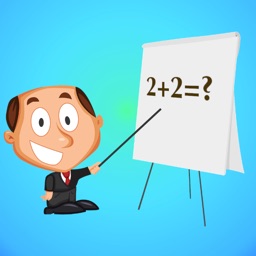Math is one of the most important subjects kids learn, but some kids may have a tough time with it. That doesn’t mean they’re “bad” at it or that they don’t know how to do it – it just means they need some help.
Mathematics Help For Kids
That’s why it’s essential for parents to encourage their kids to be persistent and persevere when learning math. That will ultimately boost their confidence and increase their enjoyment of the subject.
Counting
Counting is one of the most important mathematics skills for kids to learn. It helps them understand how numbers are related to quantity and also improves their ability to differentiate between different numbers.
Developing counting skills is a long process. While it is important to provide your child with plenty of opportunities to practice the skill, don’t stress if they aren’t ready yet.
Instead, model counting strategies and don’t scold them for not saying numbers in the correct order. They will eventually pick up the sequence as they repeat the activity.
Using objects that are familiar to children, like cars, trucks, or dolls can help them develop counting skills. Counting using objects that are in front of them is also an effective way to teach them the concept of one-to-one correspondence.
Addition – Mathematics Help For Kids
Addition is a simple topic that is crucial for children to understand and master. Without this knowledge, they won’t be able to perform various mathematics operations.
Addition can be defined as finding the total value of two or more numbers. This can be done using a number line or a combination of different methods.
When teaching addition, it is important to use a variety of methods and tools so that students can develop a sense of independence. This is particularly true for visual learners, who respond better to tools like dice or cards.
Addition is often introduced early on as a way to build children’s confidence in math and demonstrate its usefulness to them. This helps them overcome common misconceptions about the subject and prepares them for future mathematical challenges.
Subtraction – Math Help For Kids
Subtraction, the process of taking away something or a group of things, is one of the most important concepts for kids to grasp. It helps them to understand how quantities increase and decrease and gives them a foundation for addition.
This concept is usually taught in a very concrete way that kids understand easily. You can use a lot of manipulatives to help your child see how subtraction works, such as counters and drawings of objects or sets of numbers.
Once your child has a basic understanding of subtraction, they can move on to more complex problems. However, be careful to not overdo it. Many children find that too much theory makes them feel confused and lost.
Multiplication – Help Your Kids With Maths
Multiplication is a fundamental mathematical skill that kids must master in order to understand and tackle other concepts like division and fractions. Without mastery, the complexities of these subjects would be much more daunting to kids – and you can bet they would struggle.
Teaching children multiplication facts in small chunks is a great way to make the task seem do-able and less scary for kids and their parents. By breaking up the multiplication tables into easy-to-memorize facts, they’ll feel confident and motivated to master them for good.
To help with this, make the facts concrete with a simple visual, such as a dot array. This makes them easier for kids to memorize, and it also gives them a stepping-stone to use as they practice each times table on its own.
Division
Division is a crucial skill for kids to master. It teaches them how to break larger numbers into smaller groups, and also helps them build their memory skills.
Initially, it is important to introduce division as a concept using fun and engaging activities. This will make it easier for students to grasp the process and see division in action.
Once they understand the basics, you can move on to working with remainders where they are not able to be divided evenly. This can be a challenging concept for some kids and can take a little time, but it is important to keep up with their learning progress.
This can be a challenge for kids in Grades 3 and up, but it is possible to teach them the steps needed to execute long division. Our teaching wiki provides helpful information and includes lessons, worksheets, and challenge cards to help your kids practice this important math skill.

